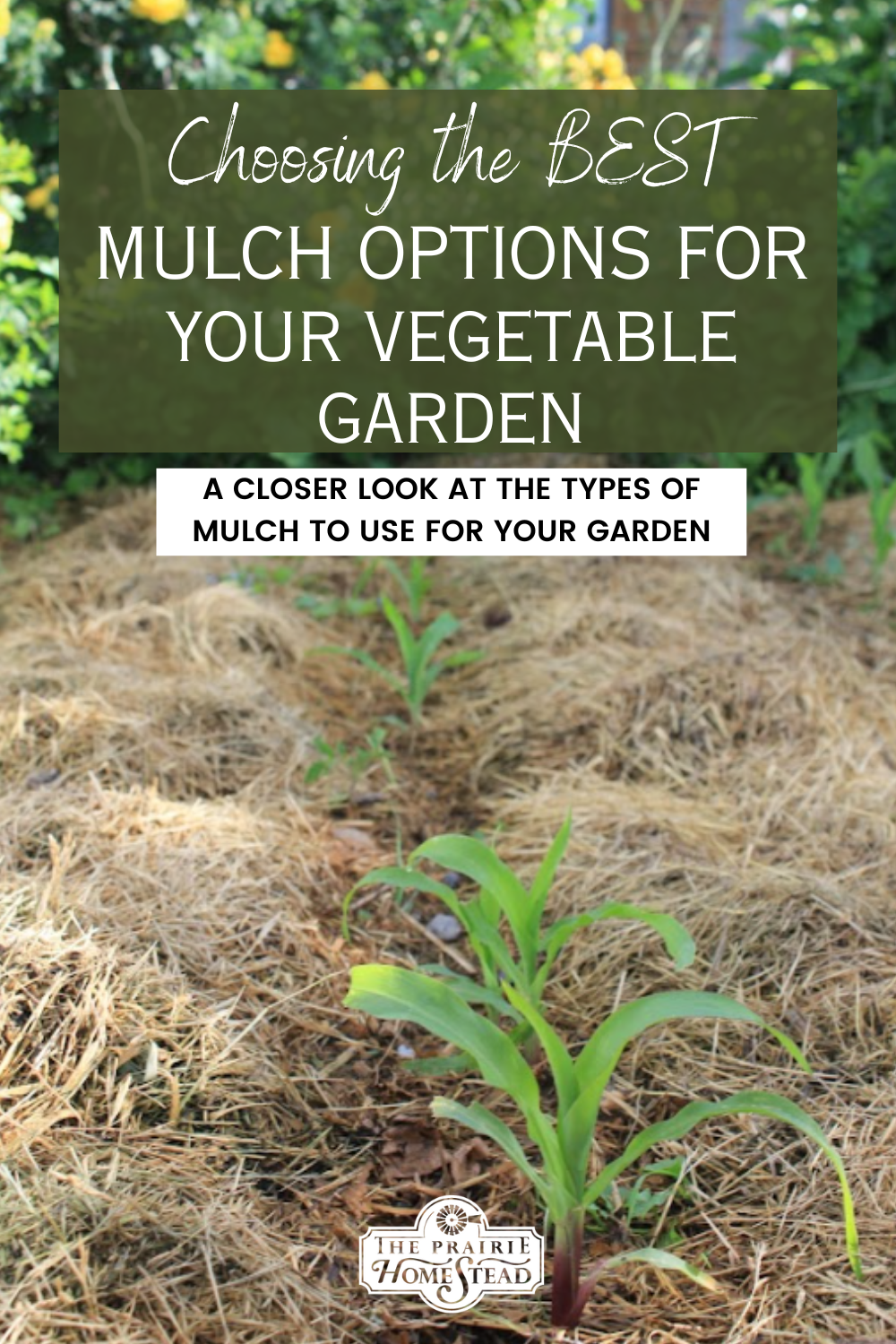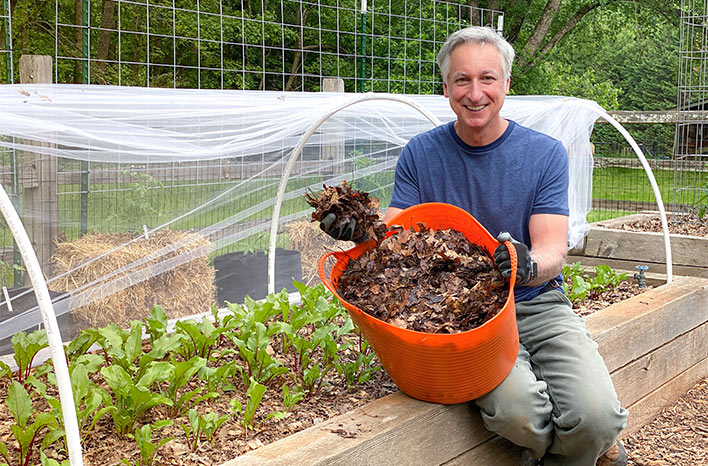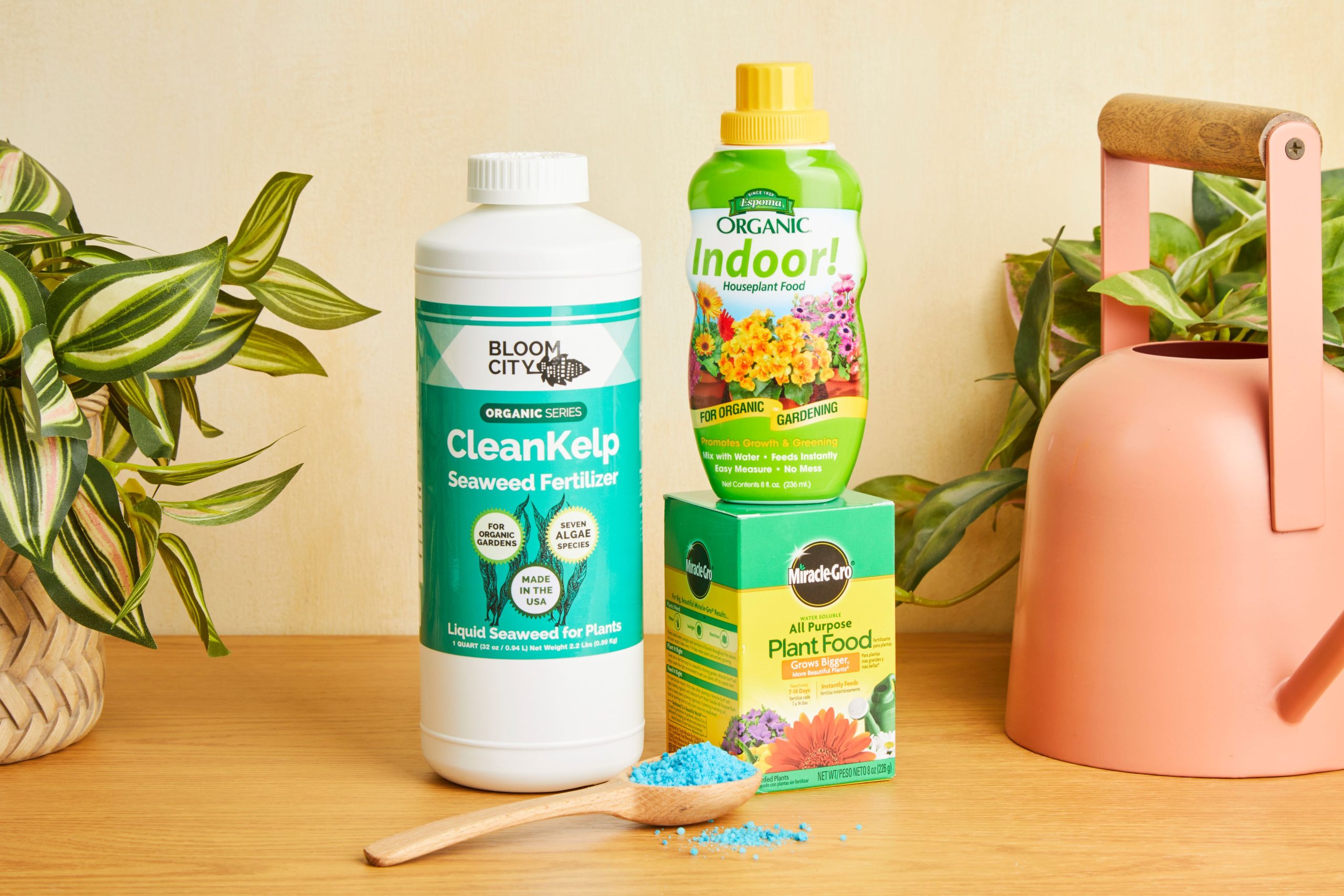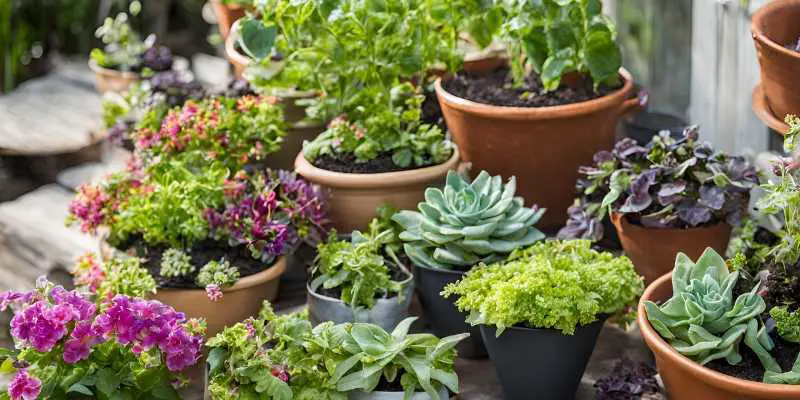Mulching your garden can make a big difference. It helps retain moisture and suppress weeds.
But what is the best way to mulch your garden? Gardening involves many tasks, and mulching is one of the most important. Mulch acts as a protective layer for your plants. It keeps the soil cool in summer and warm in winter.
It can also improve soil health over time. With so many types of mulch available, choosing the right one can seem overwhelming. But don’t worry. By understanding the benefits and types of mulch, you can make an informed decision. This guide will help you discover the best way to mulch your garden. Keep reading to learn more about how to make your garden thrive.

Credit: www.theprairiehomestead.com
Introduction To Mulching
Mulching is an important gardening task. It helps to keep the soil moist. Weeds grow less with mulch. Soil temperature stays steady. Plants stay healthy and strong.
Benefits Of Mulching
Mulching helps plants grow well. It adds nutrients to the soil. Mulch keeps roots cool in summer. In winter, it keeps roots warm. Mulching saves water. Less watering is needed. It also makes the garden look neat.
Common Mulching Materials
| Material | Benefits |
|---|---|
| Wood Chips | Lasts long, keeps soil moist |
| Straw | Light, easy to spread |
| Grass Clippings | Readily available, adds nitrogen |
| Compost | Rich in nutrients, improves soil |
:strip_icc()/BHG-Best-Mulches-for-Vegetable-Gardens-0u3Der9s4Rp8cYbWoaoDBf-d8708b8717794fadacb3ff9b6ba9e672.jpg)
Credit: www.bhg.com
Choosing The Right Mulch
Mulching your garden helps retain moisture and control weeds. Choose organic mulches like wood chips or straw for best results. Apply a 2-3 inch layer around plants.
Organic Mulches
Organic mulches come from natural materials. Examples include straw, wood chips, and grass clippings. These mulches improve soil as they decompose. They also help retain moisture. Organic mulches can add nutrients to your soil. They can also prevent weeds from growing.
Inorganic Mulches
Inorganic mulches are made from non-living materials. Common types are gravel, pebbles, and plastic sheets. These mulches last longer than organic ones. They do not break down over time. Inorganic mulches help reduce erosion. They also help control weeds. But, they do not add nutrients to the soil.
Preparing The Garden
Spread mulch evenly around plants to retain moisture and suppress weeds. Use organic materials like wood chips or straw. This helps improve soil quality over time.
Soil Preparation
Healthy soil is the key to a good garden. Start by testing the soil. This tells you what nutrients are missing. Add compost to improve soil quality. Mix it well with the soil. Organic matter helps the soil retain water. Also, it feeds the plants. Check the pH level of the soil. Most plants like a pH of 6 to 7. Adjust if needed.
Weed Removal
Weeds compete with plants for water and nutrients. Remove all weeds before mulching. Pull them out by hand. Use a hoe or trowel for deeper roots. Make sure to get the entire root. Cover bare soil to prevent new weeds from growing. Mulch helps with this. Thick layers of mulch block sunlight. This stops weeds from sprouting.
Applying Mulch
Mulch should be 2 to 4 inches thick. This helps keep the soil cool. It also keeps weeds from growing. Too much mulch can hurt plants. So, do not make the layer too thick.
Leave space around the plant stems. This prevents rot and disease. Spread mulch evenly. Make a donut shape around the plant. This helps the plant stay healthy. Water can still reach the roots. Your garden will look neat and tidy.
Seasonal Mulching Tips
Spring is the best time to mulch. Mulch helps retain moisture. It keeps the soil warm. Spread mulch evenly around plants. Use a 2-3 inch layer. Avoid piling mulch against stems. This can cause rot. Choose organic mulch like wood chips or straw. It adds nutrients as it breaks down. Spring mulching prevents weeds. It makes your garden look neat. Your plants will thrive.
Winter mulch protects plants from the cold. It insulates roots. Use straw or leaves. Spread a thicker layer, about 4-6 inches. Remove mulch in early spring. Winter mulch also prevents soil erosion. It keeps soil from freezing and thawing. This protects plant roots. Be sure to cover the entire root zone. Winter mulching saves your plants from harsh weather.
:max_bytes(150000):strip_icc()/SPR-hmulch-types-for-flowerbeds-1315846-hero-4829a0d1051545dda9e5670c8594bf72.jpg)
Credit: www.thespruce.com
Maintaining Mulch
Reapply mulch once a year. Spring is the best time. Check the mulch layer every few months. If the layer is thin, add more. Keep it 2-3 inches thick. This helps in weed control. Also, it keeps moisture in the soil.
Look for faded color. Mulch loses its color over time. Notice any foul smell. Healthy mulch should smell earthy. Check for compacted mulch. It should be loose and fluffy. Watch for weeds growing through. This means the mulch is not effective. Replace degraded mulch promptly.
Preventing Common Mulching Mistakes
Too much mulch can harm your plants. It can block air and water. This can cause roots to rot. Use only 2-3 inches of mulch. This amount is enough to keep weeds away. It also keeps soil moist. Too much mulch can also attract pests. Use just the right amount for healthy plants.
Not all mulch is the same. Some mulches can harm your garden. For example, rubber mulch is not good for plants. It can release chemicals into the soil. Use organic mulch like wood chips or straw. These types are good for soil health. They also break down and add nutrients to the soil. Choose the right mulch for a healthy garden.
Environmental Benefits Of Mulching
Mulching helps save water in your garden. It does this by keeping the soil moist. Less water evaporates from the ground. This means you water less often. Plants get the right amount of water they need. Less water is wasted. Mulching also reduces water runoff. This helps to keep the soil in place. Water stays where it is needed most.
Mulching improves soil health. It adds organic material to the soil. This helps the soil stay fertile. Mulch breaks down over time. This process adds nutrients to the soil. Mulch also helps keep soil temperature stable. This is good for plant roots. Healthy soil means healthy plants. Mulching also reduces soil erosion. This keeps the soil structure intact.
Frequently Asked Questions
What Is The Best Mulch For Gardens?
The best mulch for gardens depends on plant type and climate. Organic mulches like wood chips, straw, and compost work well. They improve soil health.
How Thick Should Garden Mulch Be?
Garden mulch should be around 2-4 inches thick. This depth helps retain moisture and prevent weed growth. Avoid piling mulch against plant stems.
When Is The Best Time To Mulch?
The best time to mulch is in spring and fall. Spring mulching conserves moisture and controls weeds. Fall mulching protects plants from winter weather.
Can Mulch Prevent Weeds?
Yes, mulch can prevent weeds. A 2-4 inch layer of mulch blocks sunlight. This reduces weed seed germination and growth.
Conclusion
Mulching your garden benefits plants and soil. It conserves moisture, suppresses weeds, and improves fertility. Organic mulch adds nutrients as it decomposes. Choose the right mulch for your plants. Apply it evenly and avoid piling against stems. Proper mulching enhances plant health and garden appearance.
Enjoy a vibrant, thriving garden with these simple mulching tips. Happy gardening!

My mission is to help you bring the beauty of nature indoors with expert advice, detailed plant care guides, and creative design ideas.





Leave a Reply